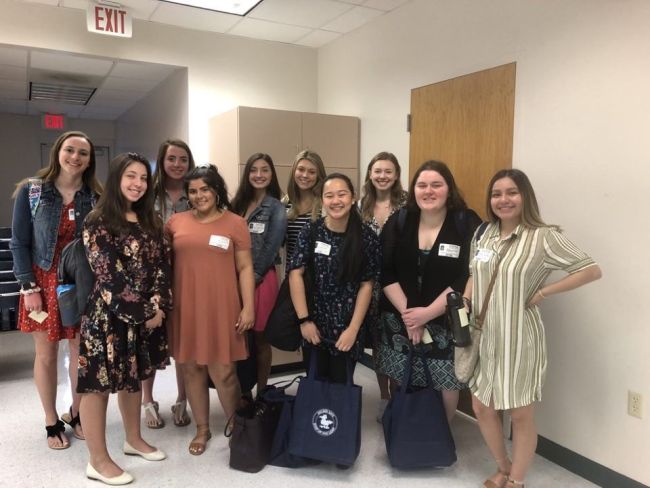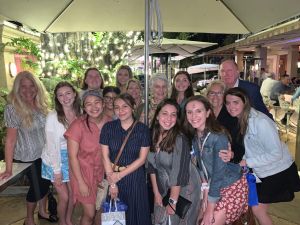“Some schools have barely anything because of the area that the school is in,” Megan Droge, a sophomore early education major said. “Then you have other schools that are flourishing with lots of resources because of the more wealthy communities. So going down to Florida really puts in perspective that we could do what they’re doing in Collier county but we’re not.”
From Feb. 22 through Feb. 29, 10 education majors and three Cabrini staff members traveled to Collier County, Florida. The Collier County School District serves nearly 45,000 students in 29 elementary schools, 10 middle schools, eight high schools, 12 alternative school programs, and adult education programs. An “A” rated school district, Collier serves a diverse population.
With schools in the cities of Naples, Everglade City, Immokalee and Marco Island, Collier has the second largest student population in the State, the largest number of English Language Learners (ELL) and the second-largest number of students eligible for free or reduced lunch.
“I applied for the trip because most schools in that district are Title 1 so they are very socially and economically disadvantaged but every single school in that district has the same resources and is given the same amount of money,” Droge said.

Collier County public schools were selected by the education staff for students to visit for several reasons. Students were able to observe the exceptional curriculum, training and facilities. They could also take advantage of the opportunities to serve as members of educational teams that could plan and differentiate instruction for students with various academic abilities.
The purpose of this trip was to provide pre-service teachers the opportunity to learn and experience teaching in diverse settings and to work with a high ELL student population. They could also obtain more mentoring from experienced teachers using Marzano’s Art and Science of Teaching Frame Work.
Another crucial part of the experience is for the students to learn about domestic violence so they can grow into teachers who can contribute towards the fight to end it. To accomplish this, the Education Department used Cabrini’s partnership with the Barbara and John Jordan Center for Children of Trauma and Domestic Violence Education. Before the trip, the students who applied were required to attend training on domestic violence education and do research on students who had taken this trip before them and learn about what they experienced.

The future educators learned the impact of domestic violence on children. Understanding these impacts will help them grow into better teachers. In Florida, the students visited a women’s shelter. It was here that the students got to see how the women and families were cared for and how they all learned to grow into independent human beings.
“We prefer they also have one field experience before going on this trip,” Beverly Bryde, dean for the school of education, said. “The reason for that is because we want to see how well they do in schools.”
Due to this pre-requisite, students who apply for this trip fall between sophomores and juniors. This amount of experience is enough for the staff to see the students perform in a K-12 environment.


